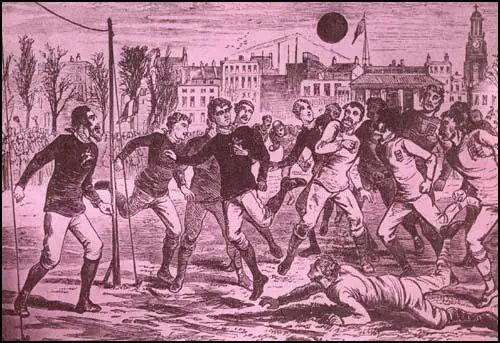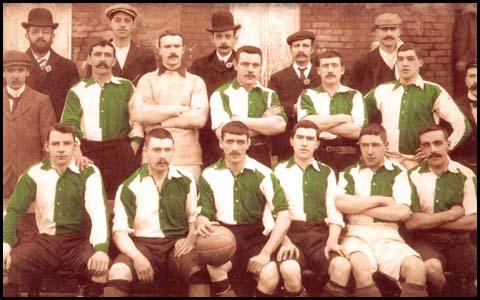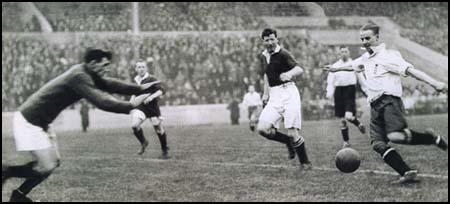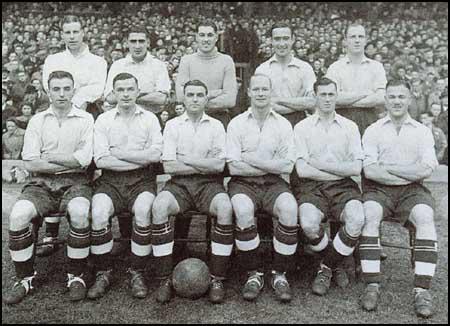International Football
Charles W. Alcock, the secretary of the Football Association, and Arthur Kinnaird, his friend from Cambridge University, who had been born in Scotland, arranged the first international football game to be played on the 30th November, 1872.
Alcock took a team of English born players to play against a team from Scotland. The match, played in Glasgow, ended in a 0-0 draw. The main objective was to publicize the game of football in Scotland. It had the desired effect and the following year the Scottish Football Association was formed and the England-Scotland match became an annual fixture.

In 1876 Wales established its own Football Association. Later that year Wales played Scotland. The more experienced Scottish side won 4-0.
The Irish Football Association was formed in 1880. They played their first game in 1882 when they were beaten 13-0 by England. The following year the British International Championship was established. Each country met the other three over the course of the season. Scotland won the initial championship by beating England (1-0), Wales (4-1) and Ireland (5-0). The following season Scotland scored 8 against both Wales and Ireland. However, they could only manage a 1-1 draw against England.
James Forrest won his first international cap for England against Wales on 17th March, 1884. The following year he was selected to play against Scotland. Scottish officials complained as they argued that Forrest was a professional. At the time he was receiving £1 a week from Blackburn Rovers. Forrest was eventually allowed to play but he had to wear a different jersey from the rest of the team. Over the next few years international sides contained more and more professional players. It was another sign of the decline in amateur football.
Over the next few years, Scotland and England dominated the British International Championship. It was not until Ireland was involved in a three-way tie in 1902-03 that there were signs of a shift in power.
Leigh Roose was captain of the Welsh team that played in the game against Ireland at Wrexham in March, 1906. The match was filmed by Sagar Mitchell and James Kenyon (included in Edwardian Sports). Approximately two-and-a-half minutes of the footage survives today and it is believed to be the oldest anywhere in the world featuring an international football match.

In 1907 the Welsh team beat Ireland (3-2) and Scotland (1-0). They clinched their first Home Nations Championship with a 1-1 draw with England. Billy Meredith and the goalkeeper Leigh Roose, were outstanding in these games. This was a fantastic achievement as in none of the three games had Wales managed to field the side originally selected. The main reason for this was that Football League clubs often refused to allow Welsh players to represent their country in international fixtures. As Meredith pointed out: "In those days, Wales was never really sure of a first team and there used to be a sigh of relief when the party trickled up in twos or threes. Reserves were usually standing by, but a reserve goalkeeper was not thought of when Dick (Leigh) Roose was holding down the position."

is wearing the goalkeeper's jersey. The captain, Billy Meredith is holding the ball.
After the First World War, Scotland emerged as the leading football power in Britain. Their chief rivals were Wales who won the championship six times between 1920 and 1937.

Although England, Scotland, Wales and Ireland played in friendlies against foreign opponents, no British teams took part in the first three World Cups.

to right, Harry Goslin, Joe Bacuzzi, George Marks, Denis Compton, Stan Cullis,
Stanley Matthews, Jimmy Hagen, Eddie Hapgood, Don Welsh and Joe Mercer.
Goslin joined the 53rd Field Regiment and was killed in Italy on 18th December, 1943.
